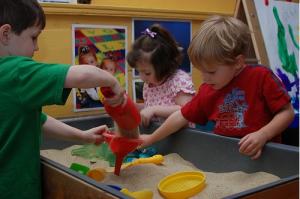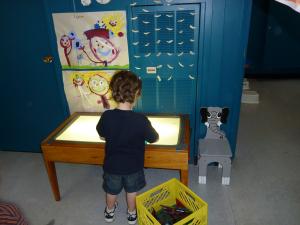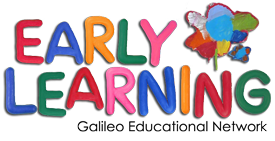
 Learning to share, recognizing the feelings of others and making new friends – when it comes to school readiness, these important skills lay the foundation for learning about numbers and how to read and write.
Learning to share, recognizing the feelings of others and making new friends – when it comes to school readiness, these important skills lay the foundation for learning about numbers and how to read and write.
Leading child development researcher Dr. Adele Diamond has found young children who can’t regulate their social and emotional behaviour aren’t ready to learn. The development of these self regulation, or executive functioning skills has a stronger association with academic success than a child’s IQ or entry-level reading or math skills.
What’s important is to decide whether your child is physically, mentally and socially ready for school. According to Let’s Talk About the Early Years, a report released by Alberta’s Chief Medical Officer of Health, the question isn’t so much about readiness for school; it’s about readiness for life. Although most children are born with strong potential to grow, learn and thrive, one in five kids have lost ground by the time they’re school age.
Skills
 Effective early learning environments continue the development of….
Effective early learning environments continue the development of….
- Physical and motor skills: The performance of fine motor skills, especially, is linked to the development of concentration and attention. Generally put, a child who is in control of his or her own body is better equipped to interact with others in the classroom.
- Social and emotional intelligence: The following skills are an important factor in developing relationship and attention skills. Can your child assess and relate to the feelings of others? Can he or she read and respond to social cues? The willingness to negotiate and resolve conflict is another important sign of social / emotional intelligence, as is the ability to identify feelings and delay gratification (self control).
- Cognition and Language: Simply put, cognition refers to working memory and attention. Communicating with others effectively is also important. It is stressed, however, that school readiness involves more than a specific skill set in an academic area. With that said, language difficulties need to be addressed as early as possible.
Advice for Parents
- Some kids cry on the first day of school. Although most calm down quickly (often after you leave!), if this is a continuing problem, your child’s teacher can work with you to help everyone adjust.
- Share in your child’s success, and discuss your expectations.
- When the time comes for Kindergarten, teachers can be a good resource for both parents and for children, to help them understand their future role as Kindergarten students.
- Participate as many activities as you can – in and out of the classroom. This is not only important to your child, you can also get to know everyone in the school community. When you show a genuine interest in schooling, your child is more successful.
- Talk about school with enthusiasm and ask specific questions about your child’s day – ones that don’t require a yes or no answer.
The Classroom
The classroom should be set up in such a way to support a learning environment based on caring, trust, and safety:
- Everything has a place and a function. The classroom is clean and well organized. Additionally, the children’s ideas and interests are reflected in the classroom.
- There are interesting materials to use, ones which typically wouldn’t be found at home, such as clays, sand, sea shells and glass beads. Space should also be provided for more boisterous play and also areas for quieter, or solitary play. There should be room for small and large group activity. Everything should be designed in a way that makes it easy to transfer from one activity to another. A rich environment encourages children to challenge themselves, and what they know about the world around them.
- The environment needs to be a place where a variety of play activities could erupt. This supports the growth of self-regulation skills – an essential set of tools that children need for academic and life success. Self regulation skills are about sharing ideas and solving problems together, taking safe physical risks, struggling through challenging problems to learn something new, and using language to resolve conflicts. A teacher who is sensitive to children’s emotions will ask questions to help children interpret their feelings, label them and regulate them in socially appropriate ways.
Downloads
Dr. Jane Hewes has tips on how adults can create an environment that allows children to explore their environment and learn through play.
Ratios are the name of the game when a young child decides to make “soup” out of different types of marbles.
A simple bedtime story can open the door to another “what if” conversation that involves math.
Learning cannot take place without assessment. It’s especially important children are given opportunities to evaluate and participant in their own learning. This document lists what to look for in an early learning classroom.
This document contains information about core math skills, such as compensation, patterns and cardinality. The skills are also identified in the math-related play outlined in the other math downloads on the site.
Read how one child develops correspondence and compensation skills, thanks to a simple game of jumping frogs, rocks or marbles.
Breakfast time can be a great opportunity to think mathematically, as one mom and her son discovered.
Mathematical reasoning and problem solving are just some of the math skills gained by playing with a simple set of blocks.

